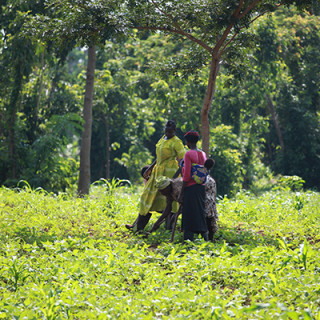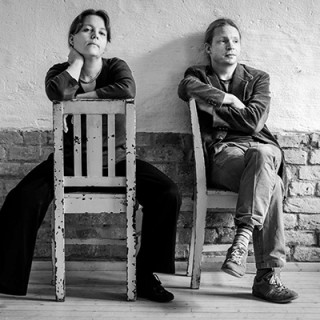Sanitation experts needed
Access to good sanitation is a basic human right. For many years, major international organisations have focused on giving people in poor countries access to adequate sanitation facilities. But pre-designed toilets and external experts are not always the best solution. Sara Gabrielsson, researcher at LUCSUS, believes that self-help through training and other methods is a better way to go.
According to Sara Gabrielsson, local collaborative groups are a necessary step for people to be able to finance, build and maintain sanitary systems. This is a conclusion that she drew after working for a year in rural areas of Tanzania, trying to find strategies to get villagers to invest time and money on building the toilets that were provided by the Indian organisation Gram Vikas.
Sara Gabrielsson found that for marginalised people, such as widows, the ill and the elderly, it was difficult to participate. Therefore, she launched four loan groups among the widows in two villages, enabling them to successfully build their own personal toilets. After that, however, construction has been at a standstill in the two villages because other groups have not had the capacity to finalise their toilets. This made Sara Gabrielsson and her colleagues at the University of Dar es Salaam look for new solutions to support the villagers.
“In order to persuade people to change their habits and embrace new solutions you cannot only consider the design and technology – the solutions must be adapted to the social and cultural reality”, says Sara Gabrielsson.
According to Sara Gabrielsson, there is therefore a need for domestic experts capable of seeing the big picture. But Tanzania already has a lack of 4 000 water and sewage engineers, according to a study conducted at the University of Dar es Salaam. They are also in need of experts who can integrate technological knowledge with a social perspective, people who know of the local, cultural determinants of health and education issues.
“Together with colleagues in Tanzania, I have now received money from the Swedish International Development Cooperation Agency (SIDA) to establish such a programme at the University of Dar es Salaam”, says Sara Gabrielsson.
A new doctoral programme with a focus on sanitation and management will be started, resulting in a strengthening of the field of social sciences and increased public knowledge. The doctoral students are to be recruited from existing master’s programmes, and the idea is that their doctoral studies will build on what they write about in their master’s theses.
“Therefore, we are also working on establishing connections between local groups and organisations that work specifically with sanitation issues, and programmes. The students’ master’s theses are to relate to one of the organisations. This way, education can move from theory to action, which is what we strive for”, says Sara Gabrielsson.
Text: Pia Romare
All doctoral students will receive most of their training and degree from the University of Dar es Salaam, but will study at Lund University for six months.
Facts
-
SIDA initiative in Dar es Salaam
-
Since the late 1990s, Sweden has funded more than half of the activities at the University of Dar es Salaam, Tanzania. Every 5 years people can apply for SIDA funding to enhance the university’s capacity – many master’s students have thereby been educated through Swedish funding.
-
Why invest in sanitation?
-
There are still 45 countries in the world where less than half of the population has access to adequate sanitation facilities. There are many reasons to invest in improvements in sanitation and hygiene, especially for women and children:
- Improve birth survival rates
- Help more children reach the age of 5
- Keep children, especially girls, in school
- Give girls privacywhen they startmenstruating
- Keep women safe from attacks
- Keep women in the work place
- Put the needs of women and girls on the monitoring map
-
LUCSUS
-
Lund University Centre for Sustainability Studies




